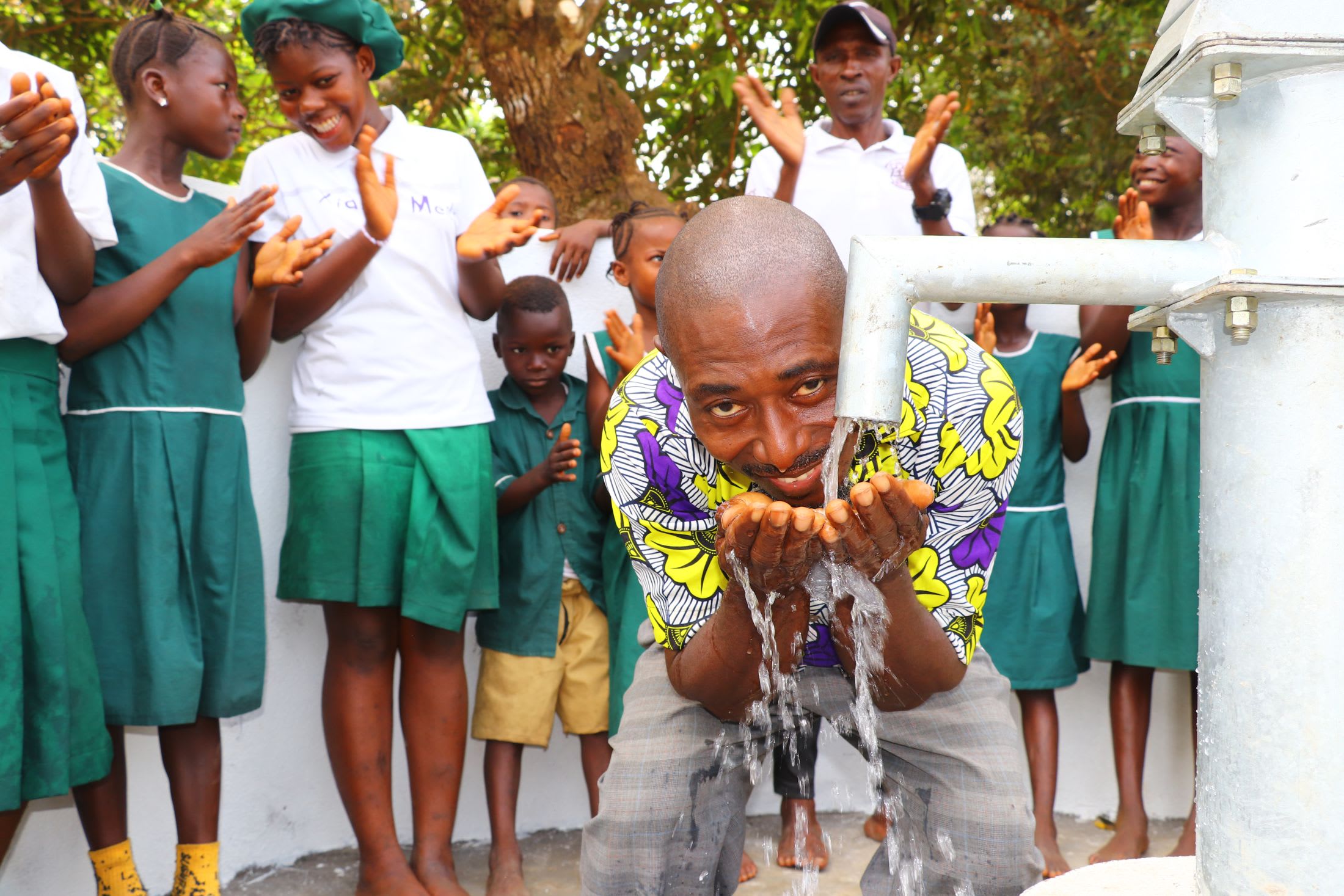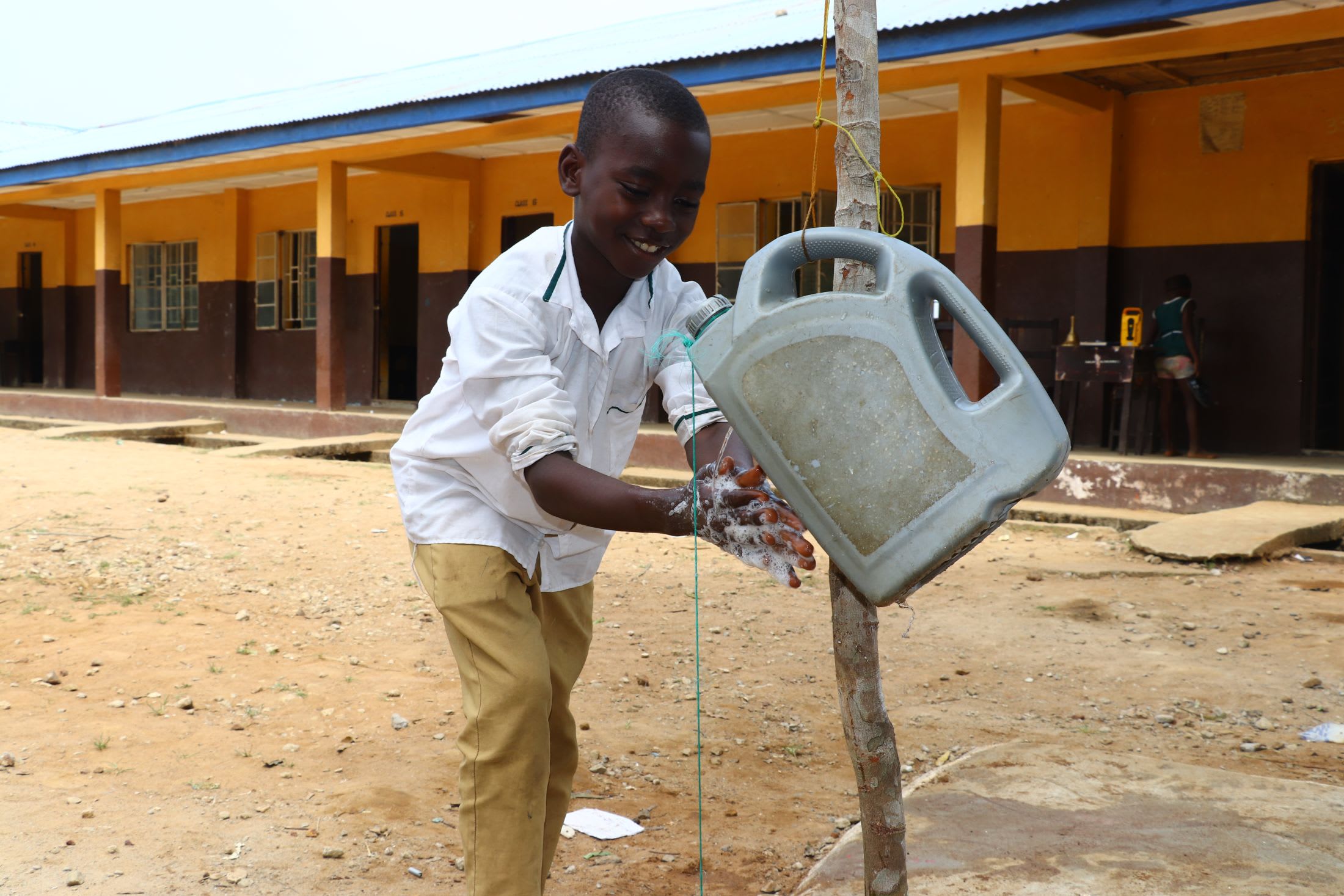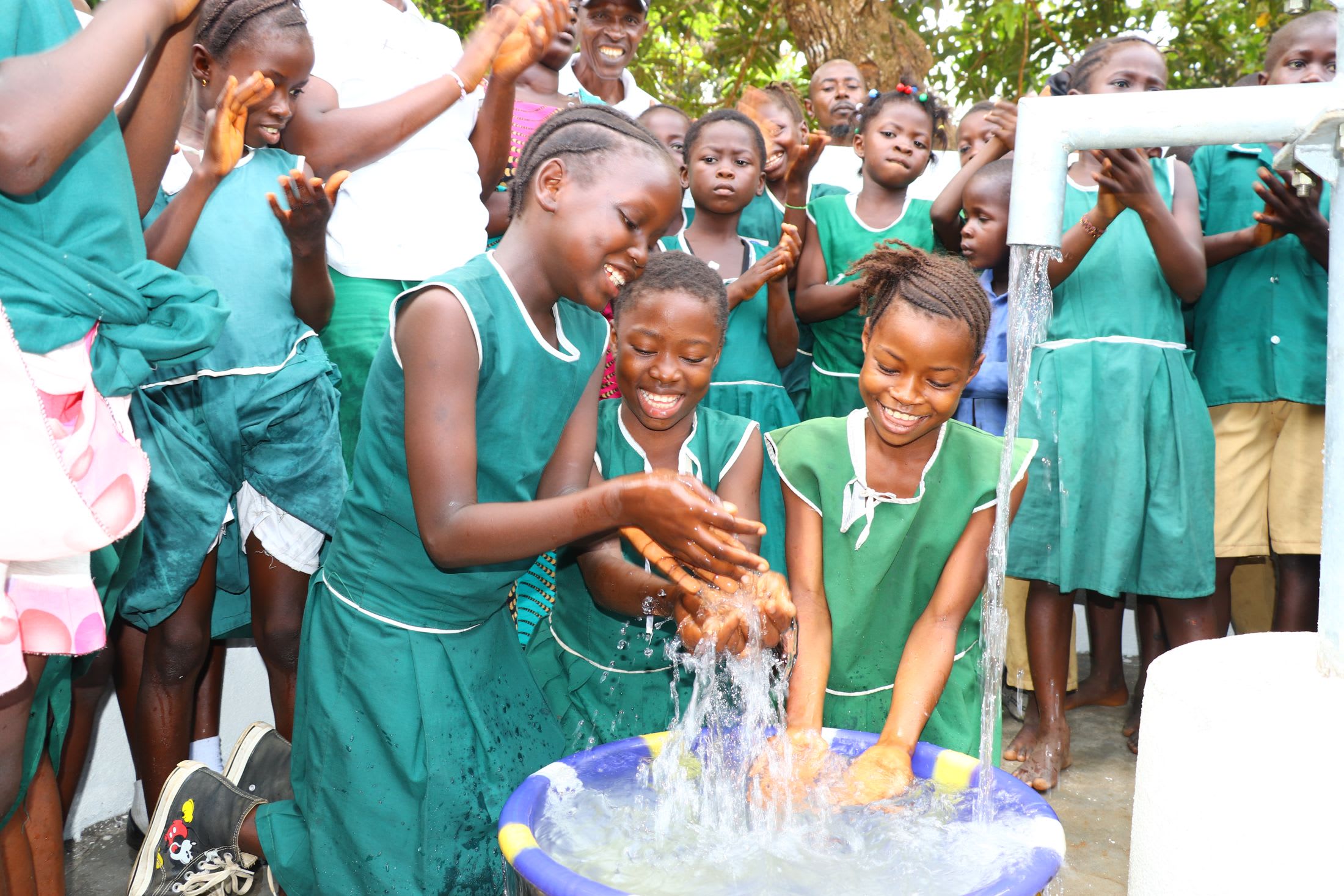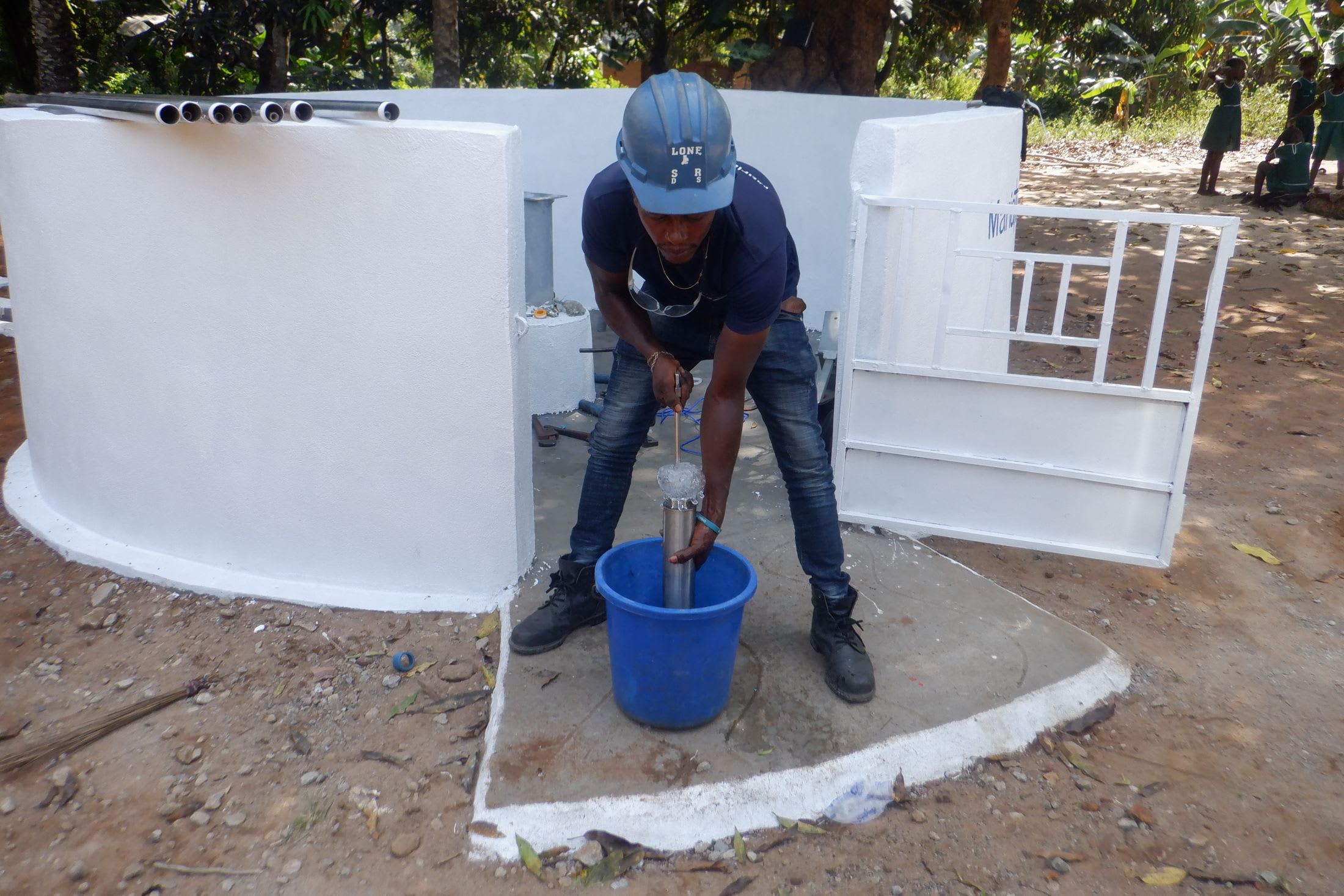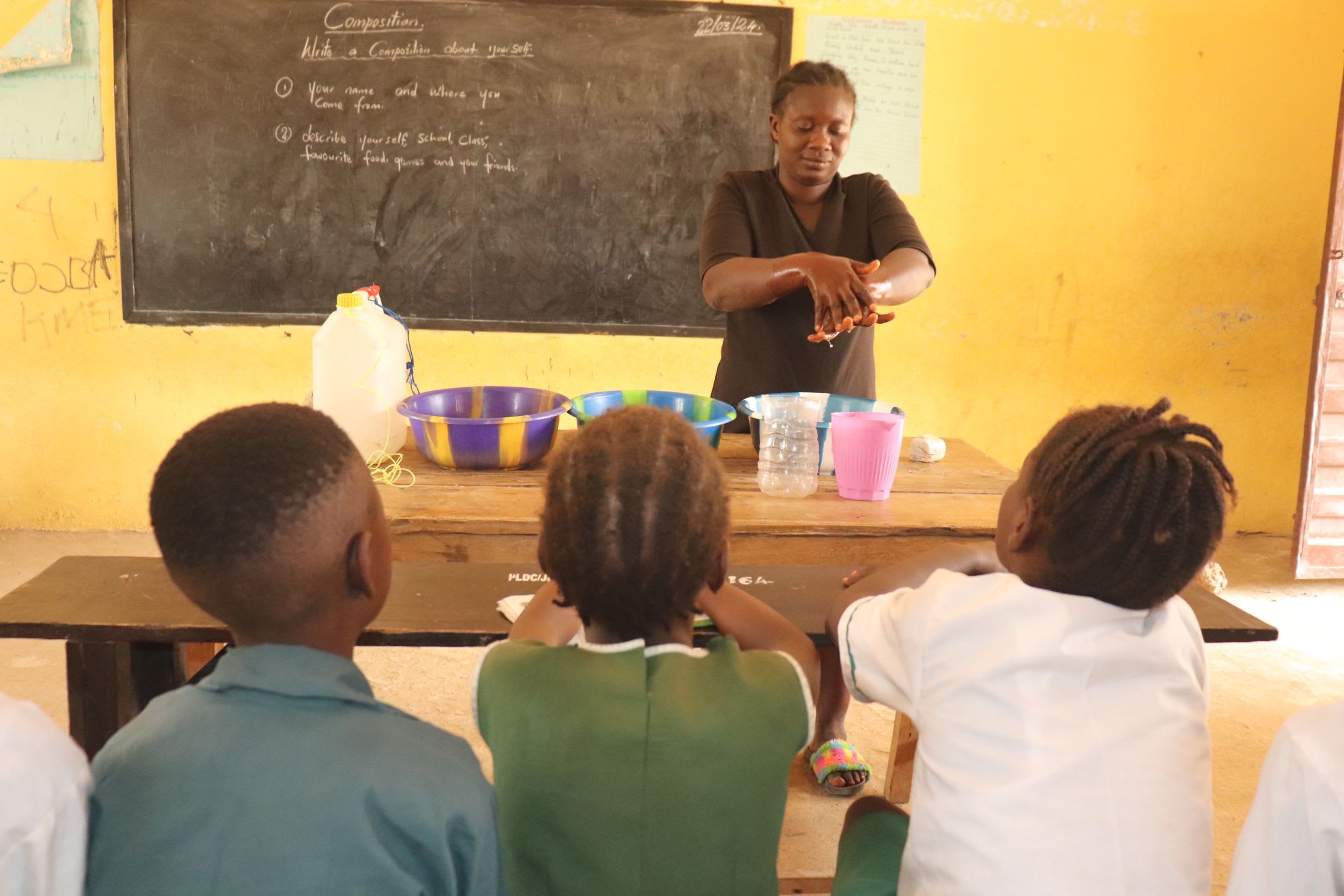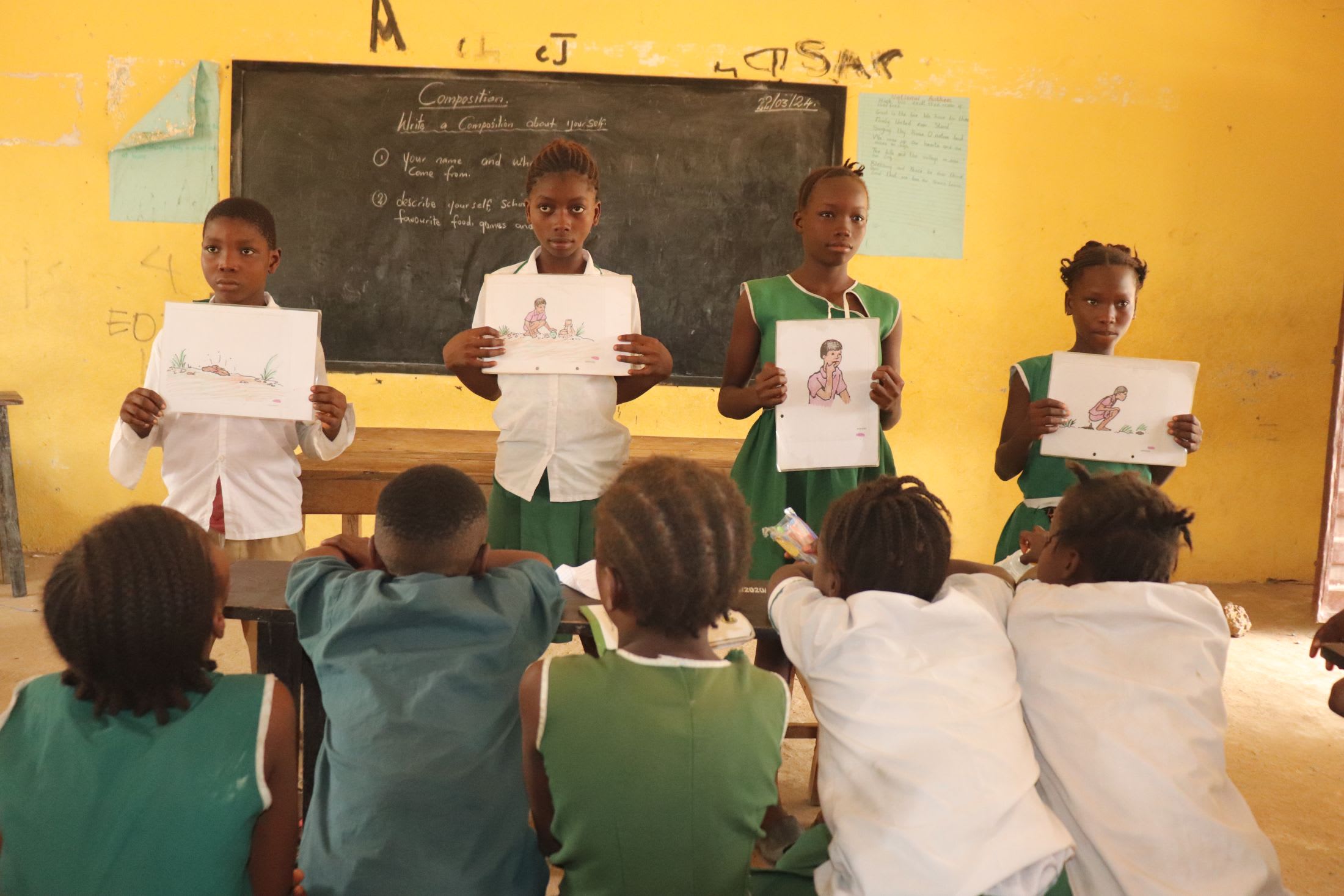At Bundulai DEC Primary School, 513 students and staff endure a disheartening water crisis daily. Little time can be dedicated to their education, as most time is spent searching, waiting, or fighting for water.

Their well once had a pump but has since broken down. To collect water, if there is some available, they must drop a bucket on a rope down into the well and haul it back up. Otherwise, they must leave the school campus to collect water from unknown sources.

"Water [has] been a challenging factor in this school. The well in this school compound does not produce safe water for the pupils and staff. The pupils leave classes to fetch water for drinking. The source for drinking is about 400 meters (.25 miles) away from the school. That is why they sometimes miss the lessons taught by their class teachers," shared Field Officer Alimamy.
"The teachers also leave the pupils alone in the class when they need water. They sometimes fight amongst themselves, and this could lead to serious injury among the pupils. Their academic performance is also affected because their teachers are not teaching effectively. Water challenges prevent the staff and pupils from using the restroom. They leave the school compound; this habit also affects their academic performance," Alimamy continued.
Not only does the water crisis affect their education and hygiene, but many students must try to focus on an empty stomach, as their school lunch program can't operate without water.
"There is a school feeding program; those who are cooking are unable to cook on time due to the lack of water in the school. The staff and pupils are unable to get sufficient water for drinking after eating," Alimamy added.
38-year-old Mariatu Kamara, seen in the classroom below, shared her experience at the school, "As a teacher and also a resident of this community, I am always in dire need of water. I am also part of the women that are preparing food for the pupils. I spend a lot of time searching for water; that is why we are always unable to prepare food on time for the pupils."

"As a housewife, I need water to do my household activities. [From] February to April, when there is a total water shortage in the community, I find it difficult to clean the compound and the bathroom. I am also unable to launder my clothes. That is why I store a lot of dirty clothes that will harbor a lot of mice in the house," she added.
"I need water to [bring to] school, but it will not be possible. As a result of this, I am always late to go to school to teach. This will have a negative impact on the lives of the pupils as I may not be able to complete the school syllabus and hence lead to the poor performance of the pupils. I am also unable to use the restroom in the school because there is not sufficient [water for the] school. The only option I have is to go out of the school premises," continued Mariatu.

10-year-old Fatmata S, seen above, is familiar with the hardships this water crisis produces in her life. She said, "As a student, I need water when I am in school. I am always afraid to drink water from the well in our school because the water is not safe and can cause frequent stooling and stomach aches. That's [the] reason why I always go home when I want to drink. I normally leave the class without the permission of the teacher. When [I] come back, my teacher always flogs me for not taking an excuse."
"I am also afraid to use the restroom because there is not enough water in the school. The restroom always produces an odor that is unpleasant for me, and some students may defecate [out] of the restroom," Fatmata added.
"My parents always need water. I normally fetch water before going to school. I am responsible for fetching water for cooking and other household activities. There is always congestion at the water source, especially in the dry season. I am unable to come to school on time, and I always miss lessons that are taught by my class teacher. My academic performance is always affected because of the water crisis in the school and the community," she continued.
"It will be a great opportunity if a water well is constructed in this community and the school. So, I will be able to use it in school and at home," concluded Mariatu.
"If there is sufficient water, I will be able to help in cleaning the restroom, so it will be a safer place for my colleagues and me. I will be happy if this well is renovated in our school," Fatmata added.
The rehabilitation of the school's well will enable teachers like Mariatu to meet both her students and her family's needs. Then, she can prioritize her time to fully invest in helping her students create a brighter future. Hopefully, students like Fatmata will have a lighter burden to carry regarding water for their school and homes and waste less time searching and waiting for water and more time learning.
The Proposed Solution, Determined Together...
At The Water Project, everyone has a part in conversations and solutions. We operate in transparency, believing it benefits everyone. We expect reliability from one another as well as our water solutions. Everyone involved makes this possible through hard work and dedication.
In a joint discovery process, community members determine their most advantageous water solution alongside our technical experts. Read more specifics about this solution on the What We're Building tab of this project page. Then, community members lend their support by collecting needed construction materials (sometimes for months ahead of time!), providing labor alongside our artisans, sheltering and feeding the builders, and supplying additional resources.
Water Access for Everyone
This water project is one piece in a large puzzle. In Kenya, Sierra Leone, and Uganda, we're working toward complete coverage of reliable, maintained water sources that guarantee public access now and in the future within a 30-minute round trip for each community, household, school, and health center. One day, we hope to report that this has been achieved!
Training on Health, Hygiene & More
With the community's input, we've identified topics where training will increase positive health outcomes at personal, household, and community levels. We'll coordinate with them to find the best training date. Some examples of what we train communities on are:
- Improved hygiene, health, and sanitation habits
- Safe water handling, storage & treatment
- Disease prevention and proper handwashing
- Income-generation
- Community leadership, governance, & election of a water committee
- Operation and maintenance of the water point

 Borehole Well and Hand Pump
Borehole Well and Hand Pump










